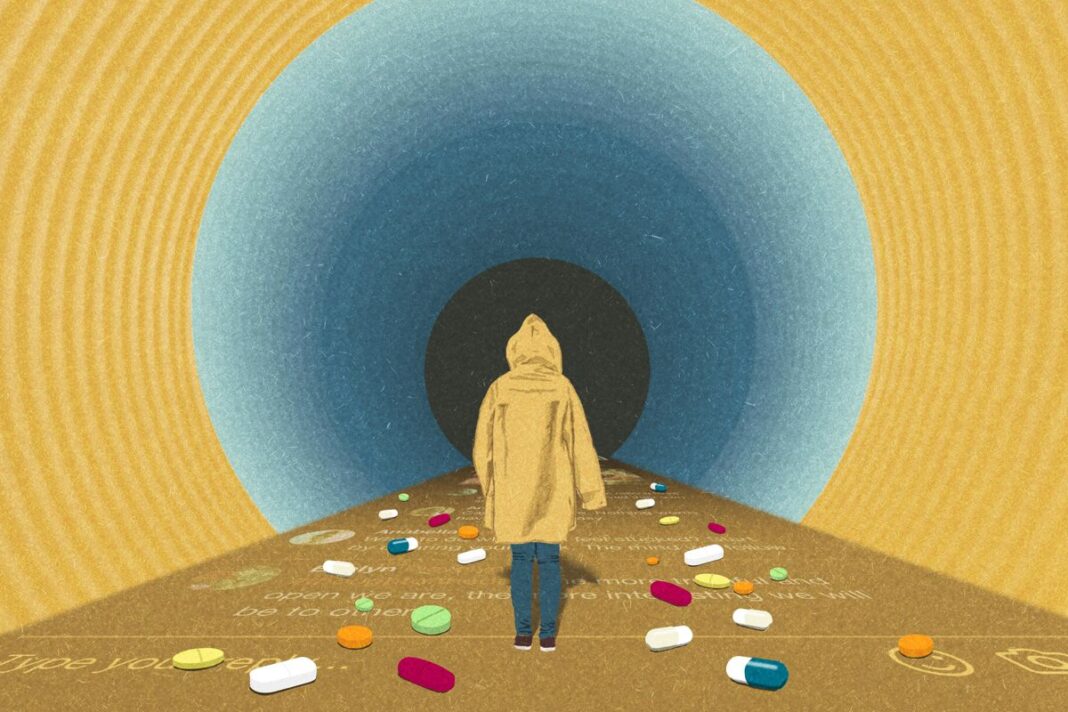More teens are experiencing anxiety and depression, taking medication, and struggling with the fallout of drugs—problems that can carry into adulthood.
Sofia never really felt like she fit in as a preteen, so she turned to a place where she could get lost and go numb.
She sat scrolling on her smartphone, hour after hour, day after day, searching for her identity. It was an easy distraction from the social isolation of the COVID-19 quarantine and the pain of her parent’s divorce.
“I was so enraptured by what was going on in my phone,” Sofia, now 15, told The Epoch Times. She hated herself, caught up in standards she didn’t think she could achieve and was genuinely terrified by the thought of talking to peers.
“After quarantine, I would go out, I’d be profusely sweating. I would be nervous, my face would be burning when I was talking to people.” Rather than discuss her feelings, she’d let them build up inside until she’d explode with emotion.
Sofia considered her options. She watched peers brag about anxiety medications on social media and saw them isolating further into unchecked phone scrolling. Like Sofia, today’s teens are prone to a common trap of social media that germinates anxiety and depression and grooms them to believe medication is the only way to escape the uncomfortable—and sometimes normal—feelings that accompany adolescence.
Platforms like TikTok have amplified a broad spectrum of voices around drugs for teen anxiety and depression. Those voices include psychiatrists educating about various medications, sponsored influencer content, pharmaceutical advertisements, and even teens boasting about their own anti-anxiety prescriptions.
Teen Anxiety Then and Now
The barrage of medicalized anxiety messaging is a sharp contrast from two generations ago when selective serotonin reuptake inhibitors (SSRIs) were first hitting the market for depression and anxiety. Drugs were a relatively unfamiliar—and often private—solution for mental health struggles.
Social media has brought more awareness and normalization to teen mental health issues. Experts are concerned, however, that lopsided attention given to the quick fix of medication interferes with efforts to prevent anxiety and depression and holistic approaches to dealing with mental health.
Research shows risks associated with anti-anxiety and antidepressant medications—like drug dependence and tolerance, as well as overdosing and suicide—are rising among teens while therapy is becoming less common.
By Amy Denney







